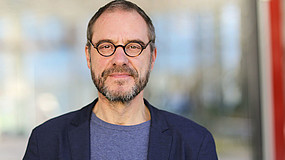Up to now, the focus of regional structural change has primarily been on technological innovations. The need for social innovations is now also coming more into focus.

In order to promote these processes in a targeted manner, evaluation criteria should be redefined. Framework conditions must be structured in such a way that social innovations can emerge. How can this social change be optimally supported?
This was the central question of a workshop at the Zittau/Görlitz University of Applied Sciences, to which four funded initiatives of the BMBF program "WIR! - Change through Innovation in the Region" had invited. Together with the BMBF and the project management organization Jülich, they shared their experiences and discussed how social innovations can be given more space in practice. Representatives of the four WIR! alliances "Lausitz - Life & Technology (Oberlausitz)", "Vogtlandpioniere",
"Recomine (Erzgebirge)", "Region 4.0 (Uckermark)" as well as "Plant³ (Vorpommern)" and "I-Ma-Tech
(Westsächsisches Vogtland)" took part in the discussion as guests of the WIR! alliances.
When it comes to technological progress, social processes are always involved.
All five regions are facing immense challenges in regional structural change and it is primarily small companies, associations and freelancers who are involved in the alliances. "When it comes to technological progress, it's always about social processes," emphasized Professor Raj Kollmorgen, Vice-Rector for Research at Zittau/Görlitz University of Applied Sciences and also consortium leader of "Lusatia - Life & Technology". Until the turn of the 21st century, technical innovations were at the center of public communication and funding, but now the focus is shifting to the necessary social innovations, according to the sociologist. Leonie Liemich confirmed that this development is reflected in the day-to-day work of the WIR! alliances. As project coordinator of "Lusatia - Life & Technology", she feels the challenges are particularly acute for the small companies and institutions that are typical of the economic and research landscape in Upper Lusatia, but whose personnel capacity and resources are limited. Raj Kollmorgen pointed out that it was very important to establish a new scientific institute in Zittau, for example. However, this development also has social consequences and provokes several questions. For example: "How do you prepare the city, the district and the region for this? What chance do local women and men have of finding a job? How can children and young people be made enthusiastic about the new opportunities?"
Constanze Roth, project coordinator of the WIR! alliance
"Vogtlandpioniere", took up these questions and broadened the perspective: "Our alliance partners, who, among other things, put their heart and soul into bringing vacant, listed buildings back to life with new, innovative uses. These are often associations, volunteer men and women and small and medium-sized enterprises." Their profound knowledge of the region and their proximity to the challenges on the ground characterize their expertise and must be used even more intensively. She would like to make even greater use of this wealth of experience, which is available in many regions, in cooperation with the BMBF and the project management agency. To this end, she suggested using special criteria to evaluate the funding of social innovations. The catalogs of criteria for innovative funding projects, which are primarily based on economic criteria, must be expanded to include a social dimension.
Joint initiative of the WIR! alliances encourages a rethink in dealing with social innovations
Ramón Kucharzak, specialist officer at the BMBF, referred to a leap in quality that has been achieved with the WIR! program family, as this funding focuses on both the technical and social dimensions of innovation. The experience gained by the WIR! alliances in their day-to-day work will play a role in the formulation of new funding programs and in the fine-tuning of the current cooperation. In consultation with Thomas Reimann from the project management agency, he suggested that specific solutions be found at a further working meeting to enable the alliances to continue their successful work. However, it must always be clear what contribution the defined field of technological and social innovation can actually make to change in a region, what investment the individual partners can make and how this process can be consolidated in the long term .
Professor Raj Kollmorgen concluded this discussion, which was conducted with great competence, curiosity and passion, with a philosophical outlook. Up to now, technological innovations have almost always been created in competitive situations, in the competition of ideas and processes, in overcoming routine. Social innovations, on the other hand, require cooperation, the coexistence of ideas and the balancing of interests. It is possible that combining both dimensions will be an important innovation in the 21st century.
A further article on the event and video statements by some of the participants can be found on the website of the Federal Ministry of Education and Research.

